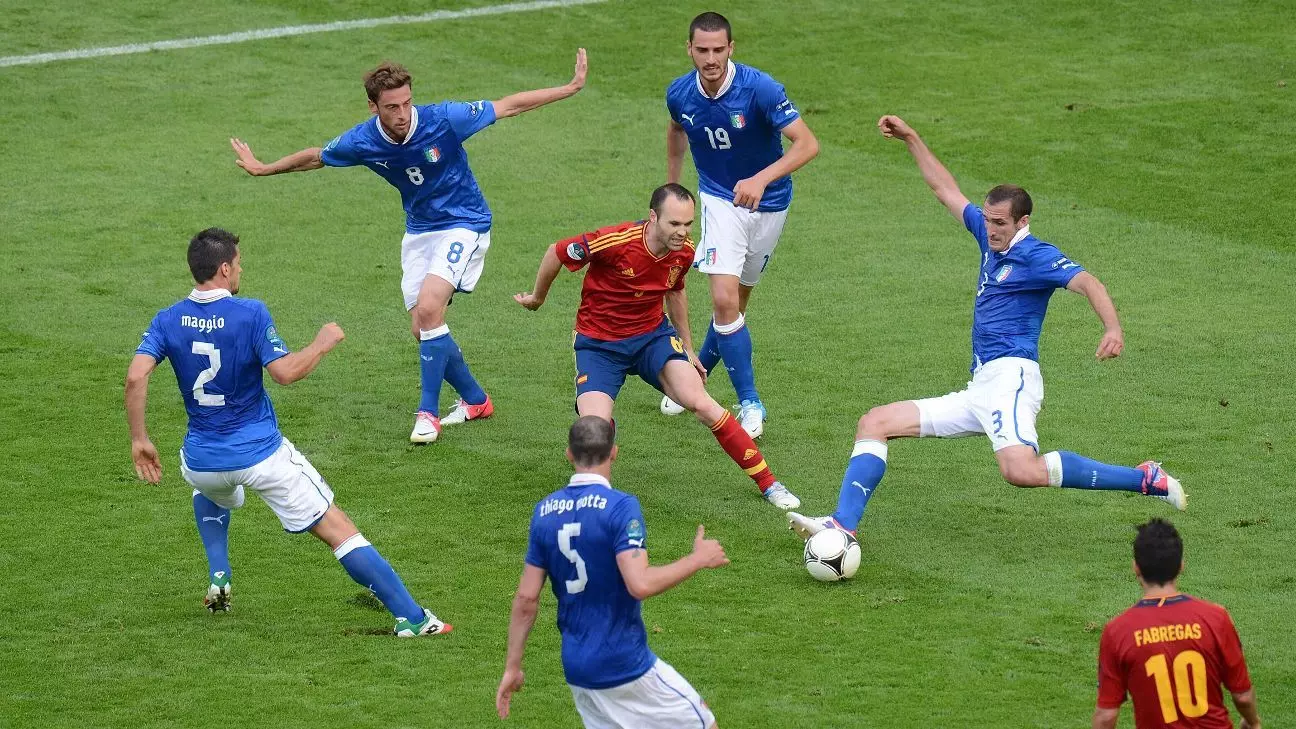Andrés Iniesta, revered as one of the greatest midfielders in football history, bid farewell to the sport in October 2023, concluding a storied career that spanned over two decades and witnessed more than 1,000 competitive matches. Iniesta’s retirement marks not just the end of an individual chapter but also the closing of an era characterized by brilliance, dedication, and unparalleled achievement in both club and international football.
Iniesta’s resilience and talent were evident from an early age. The 40-year-old Spaniard excelled in various youth tournaments, eventually catching the eye of Barcelona’s coaching staff. He made an indelible mark on the team starting in 2002, where he emerged as a vital cog in a Barcelona side that redefined modern football. The significance of his contributions cannot be understated; he helped lead the team to remarkable success, including four UEFA Champions League titles and a staggering 38 trophies throughout his career.
Critics and fans alike have often debated the greatness of players such as Lionel Messi and Cristiano Ronaldo. However, Iniesta garnered immense respect from his contemporaries, with opinions like that of David Silva, who declared him the best player in the game ahead of legends like Messi and Ronaldo. Such sentiments highlighted Iniesta’s unique style of play—an elegant maestro who dictated the tempo, orchestrating beautiful football with the deftest of touches. His legacy is felt not just in accolades, but in the way he inspired a generation of players and fans.
While titles and trophies signify one’s accomplishments, it’s the moments that resonate through time that define a player’s true greatness. Iniesta’s timeless contributions were often crystallized in pivotal matches. A notable instance includes his unforgettable goal against Chelsea in the 2009 UEFA Champions League semifinals. With the clock ticking down and Barcelona on the brink of elimination, Iniesta seized a fleeting opportunity, scoring a stunning equalizer that propelled his team into the final. The goal not only kept Barcelona’s dreams alive but also ignited a wave of celebration across Catalonia—a moment forever etched in the annals of football history as the “Iniestazo.”
Equally poignant was Iniesta’s defining moment in the 2010 World Cup final. In South Africa, he emerged as the hero when he scored the match-winning goal in extra time, securing Spain’s first World Cup trophy. His emotional celebration, dedicated to his late friend Dani Jarque, encapsulated the passion and heart that Iniesta brought to the game. This blend of skill and sentiment transformed him into a revered figure, not just among fans but within the football community.
Master of the Midfield: The Artistic Genius
Iniesta’s artistry was not confined to scoring goals; it flourished in his ability to orchestrate play, creating spaces and opportunities for his teammates. His iconic “La Croqueta,” a maneuver that enabled him to glide past defenders with extraordinary ease, became a hallmark of his playing style. Former teammate Leo Messi succinctly expressed the conundrum defenders faced against him: the perpetual hope of interception always just out of reach.
Throughout crowded matches, much like the famous 2015 encounter against Paris Saint-Germain, Iniesta’s capacity to navigate through traps designed to stifle him was emblematic of his football IQ. The ability to receive the ball under pressure and launch counter-attacks with pinpoint accuracy defined his tenure at both Barcelona and the Spanish national team.
Lasting Legacy Beyond Borders
As Iniesta transitioned into the latter part of his career with Vissel Kobe in Japan and the Emirates Club, his reverence remained undiminished. Acknowledging the end of his playing days, he chose the eighth day of October for his announcement, a fitting homage to the iconic No. 8 jersey he wore throughout his illustrious career. His decision was met with heartfelt farewells from fans, players, and clubs around the world—testaments to the respect he garnered on and off the field.
To witness Andrés Iniesta play was to experience the sublime—his mere presence on the pitch evoked a unique form of artistry. The legacy he leaves behind is not limited to numbers alone; it embodies the spirit of sportsmanship, humility, and the pursuit of excellence. As football continues to evolve, Iniesta’s memory will persist as a benchmark, inspiring future generations to aspire to that enriching blend of skill, creativity, and passion that he embodied.
In reflection, Andrés Iniesta’s journey through football is a narrative of unparalleled success marked by unforgettable moments that will resonate for years to come. As we bid him farewell, we celebrate not just the player, but the essence of football that he truly personified.
